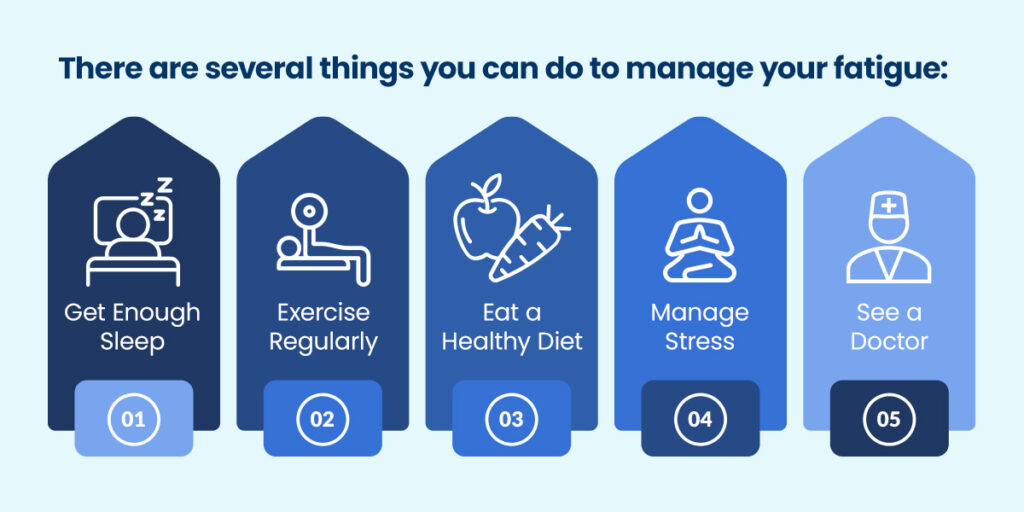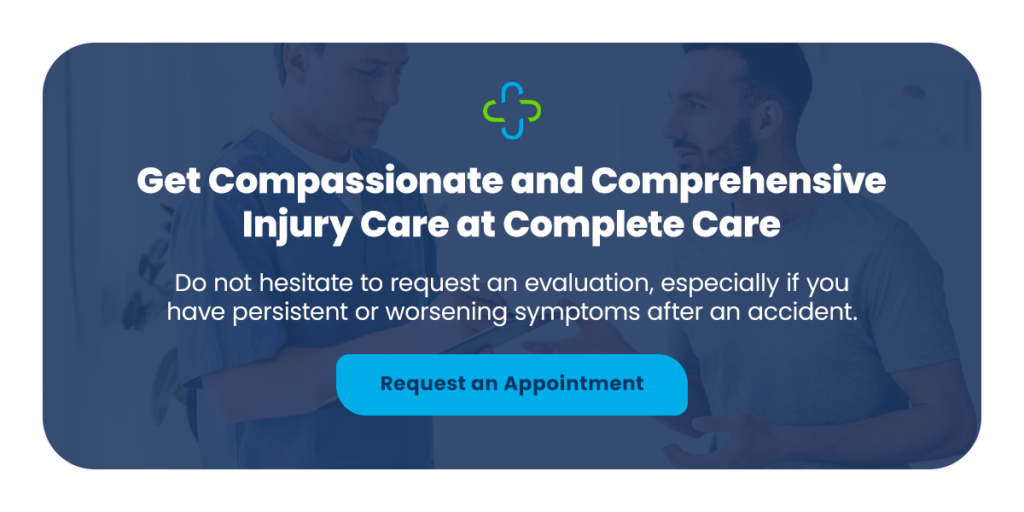Everyone reacts to the trauma of a car accident differently, but fatigue is a common symptom. It can be the body’s stress response to trauma and typically dissipates within the months following an accident. However, when you find yourself sleeping much more than usual without feeling well-rested, it can indicate something more serious.
Here’s what you need to know if you’re feeling extreme fatigue after a car accident and when to see a medical professional.
Several factors can lead to fatigue and tiredness after a car accident, from physical trauma to the psychological toll accidents can have on the mind and body.
Physical trauma and injuries can make you tired after a car accident. Even minor collisions can lead to muscle strain and soft tissue injuries, inflammation and swelling. Your body may need more sleep to heal since it releases growth hormones when sleeping to help injured tissues. As the body redirects energy to heal, you can experience fatigue and extreme tiredness.
The aftermath of an injury can be stressful, manifesting as physical tiredness. Dealing with insurance claims, car repairs and medical visits can be overwhelming, making it critical to focus on your emotional well-being after an accident.
While the physical injuries of an accident are undeniably significant, the silent injuries — the mental and psychological toll — are equally paramount. Many people find that they can’t sleep after a car accident, as they may replay the incident in their minds or experience a fear of driving again. This fear and anxiety can disrupt sleep patterns or cause insomnia, amplifying exhaustion.
It can be tricky to spot the differences between common fatigue and a sleep disorder. While fatigue typically improves over time and can be managed with lifestyle changes, sleep disorders require a medical diagnosis. They often persist for weeks or months and require professional diagnosis and treatment. Examples include:
If you experience any of these symptoms, it’s essential to see a doctor to rule out any underlying medical conditions and discuss treatment options.

There are several things you can do to manage your fatigue:
Sleep is crucial for your recovery. Try to get seven to nine hours of quality sleep every night to allow your body time to heal. Establish a regular sleep schedule by going to bed and waking up at the same time each day, following a relaxing routine like reading, taking a warm bath or practicing deep breathing before bed. Make sure that your sleep environment is comfortable, dark and quiet, which can enhance the quality of your slumber.
While it might feel counterintuitive, gentle physical activity can combat fatigue and boost energy levels. Try easy and low-impact exercises like walking, stretching or yoga. These activities can improve circulation, reduce muscle tension and promote overall well-being after a car accident. Start slow with short sessions, and increase the intensity as your energy improves. Note that you should consult with your health care provider before starting a new exercise regimen, especially if you are recovering from injuries.
Nutrition is vital to your recovery and energy. Eat a balanced diet daily of whole foods, including fruits, vegetables, lean proteins, whole grains and healthy fats. These foods can provide the essential nutrients you need to heal and improve your energy. Stay hydrated by drinking water throughout the day, as dehydration can cause fatigue. Limit caffeine and sugar intake, as these can disrupt your sleep and lead to energy crashes.
The aftermath of a car accident can be overwhelming, and stress management is vital for your recovery. To reduce stress, explore relaxation techniques like deep breathing, mindfulness meditation or progressive muscle relaxation. Keep up with your hobbies and spend time with loved ones, which can also offer a sense of calm and improve your mood. If stress significantly impacts your well-being and daily life, seek support from a mental health professional. They can provide the coping strategies and guidance you need to heal.
If your fatigue persists despite these strategies or you have other concerning symptoms, seeking medical attention is critical. A health care professional can assess your symptoms, rule out underlying medical issues and provide the proper treatment. They can also evaluate for potential sleep disorders, like sleep apnea or insomnia, which can cause fatigue.
Complete Care provides post-car accident injury care and mental health counseling. Our personalized and comprehensive treatment plans are designed to help you heal from the physical and psychological impact of an accident. That way, you can start regaining energy and feeling better.
TBI is a severe condition that can occur after a car accident. Fatigue is a common symptom of TBI and may be challenging to distinguish from “normal” fatigue. Signs that your fatigue may be caused by TBI include:
If you experience any of these symptoms after a head injury, it’s essential to see a doctor immediately. Early diagnosis and treatment of TBI are crucial for recovery.
While tiredness or exhaustion after a car accident is common, it can also indicate an underlying condition like TBI or a sleep disorder. At Complete Care, we understand how physically and emotionally traumatic car accidents can be. Our team of medical professionals is here to help you recover from your injuries and cope with the emotional and psychological impact of the accident. We offer auto injury treatment services, including diagnostics, medical care, rehabilitation and mental health counseling.
We are committed to providing you with the care and support you need to recover. Do not hesitate to request an evaluation, especially if you have persistent or worsening symptoms after an accident. Get started and request an appointment with us today.

The information provided on this website does not, and is not intended to, constitute legal advice; instead, all information, content, and materials available on this site are for general informational purposes only. Information on this website may not constitute the most up-to-date legal or other information. This website contains links to other third-party websites. Such links are only for the convenience of the reader, user or browser.